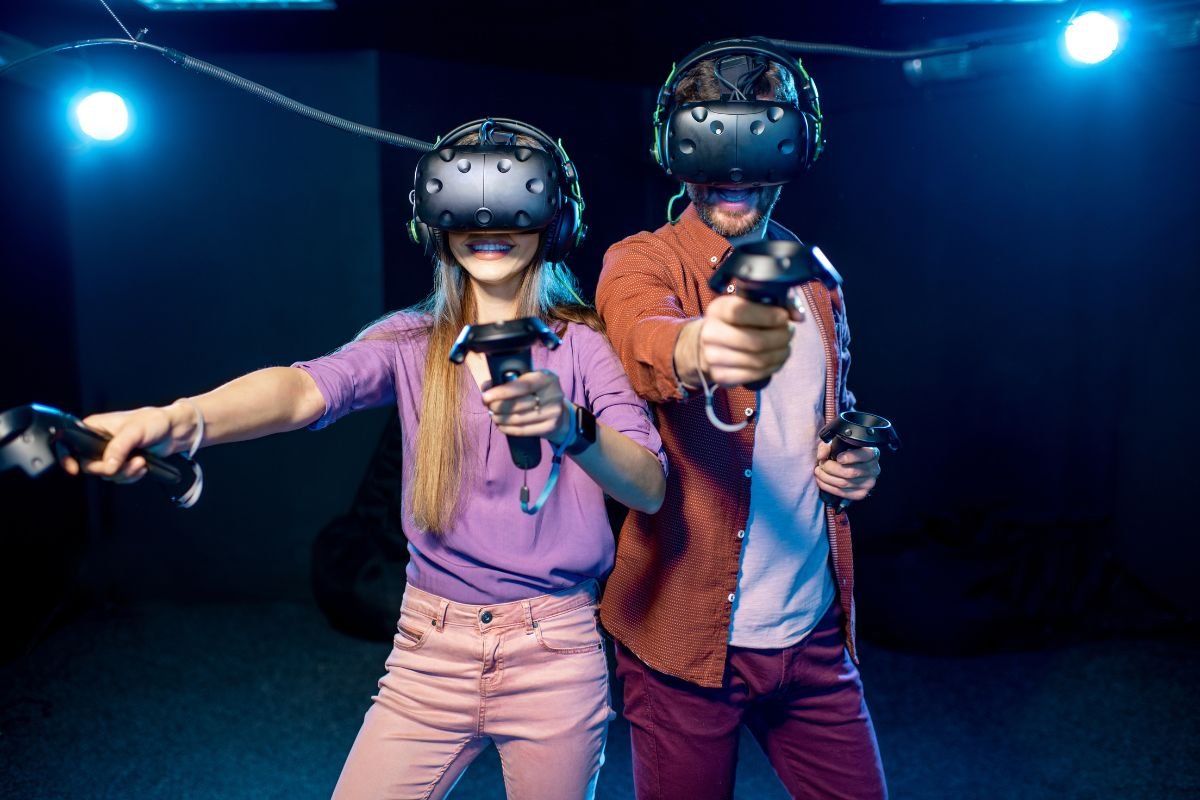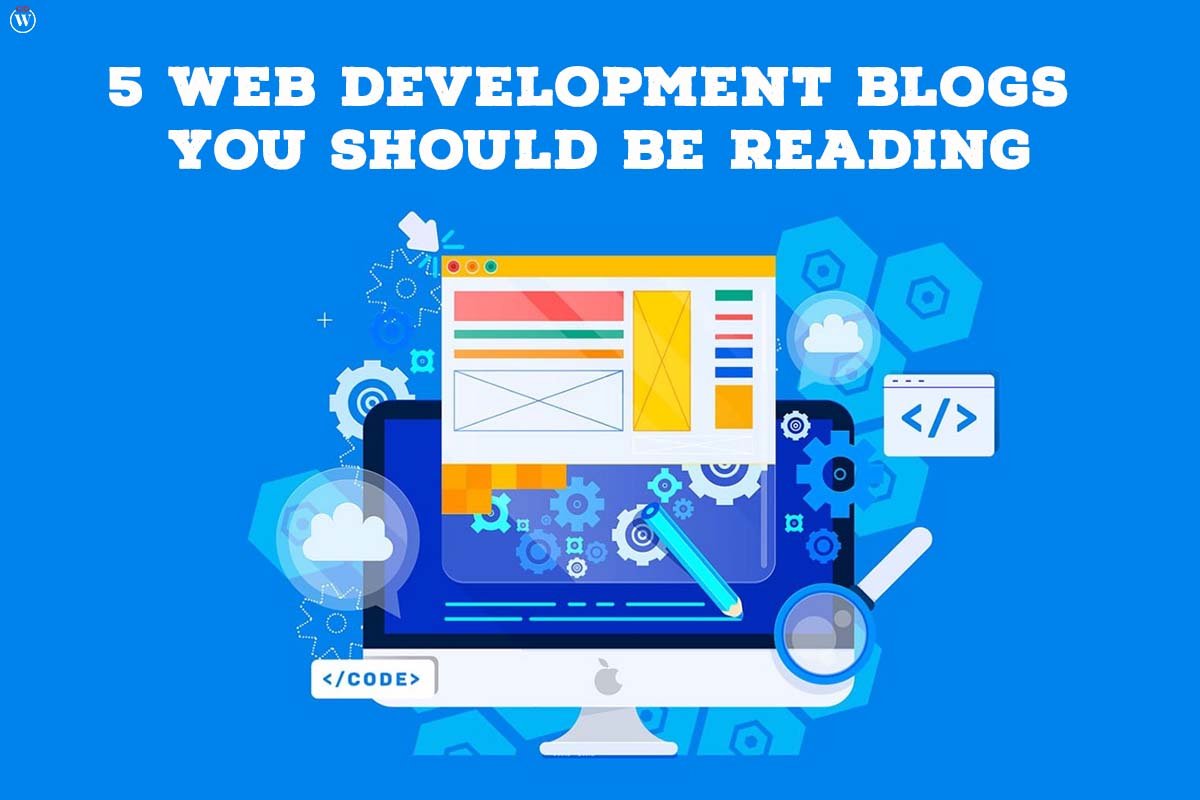The virtual reality world is expanding faster than ever in 2025. Whether you are into gaming, fitness, design, or immersive videos, choosing the right VR headset is key to enjoying the full experience. With dozens of models available today, finding the best VR headsets for your needs can be overwhelming. That’s why this guide compares the top 15 VR headsets in 2025, based on real reviews, performance, price, and user feedback.
We have included everything, from wireless to wired options, PC-based headsets, and standalone picks. So, whether you are a beginner or a tech pro, this guide is your one-stop solution to finding the Best VR headsets.
Top 15 VR Headsets in 2025
Here’s a detailed comparison of the best VR headsets you can buy in 2025. The list covers models popular in both the US and global markets,
1. Meta Quest 3:
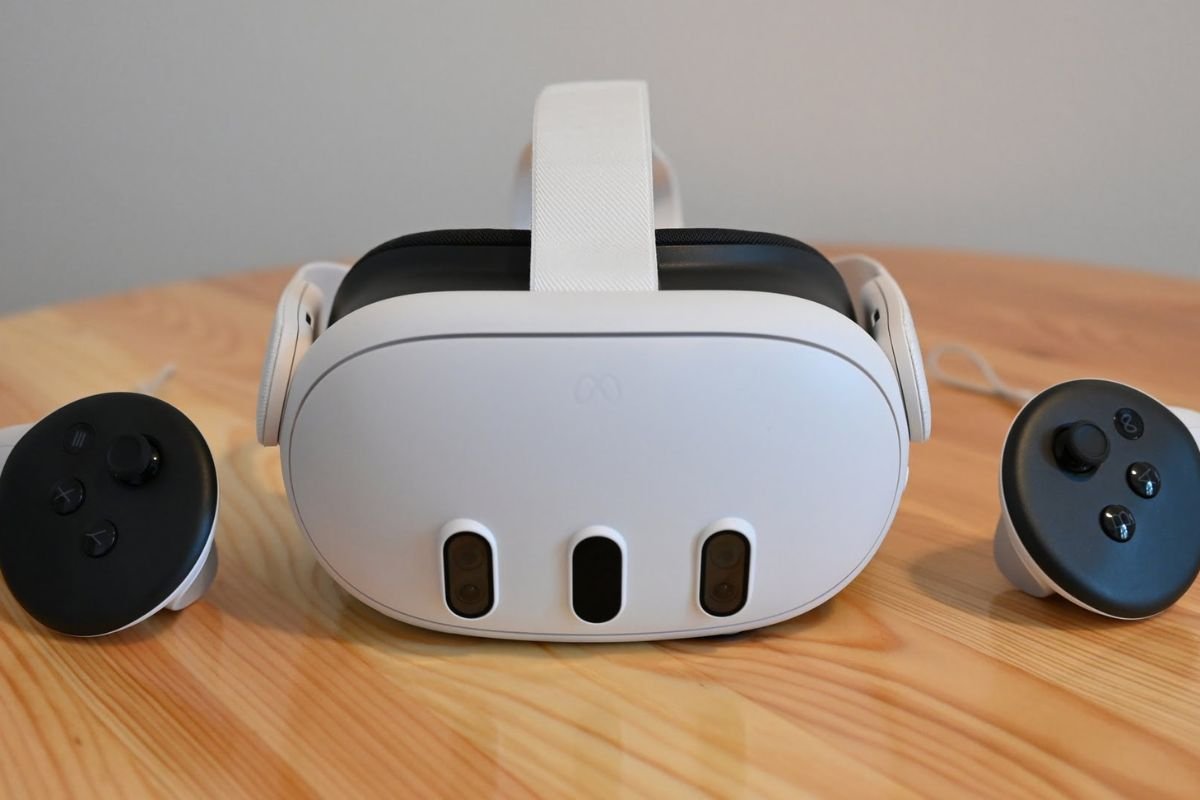
Works standalone or with a PC using a Link cable. It’s wireless and easy to use, but it drains battery quickly and needs a Meta account.
Price: $499
Platform: Standalone, PC
Ratings: 4.7
Pros: No wires, large app store, Color pass-through
Cons: Battery drains fast, Limited native games, Needs a Meta account
2. Valve Index:
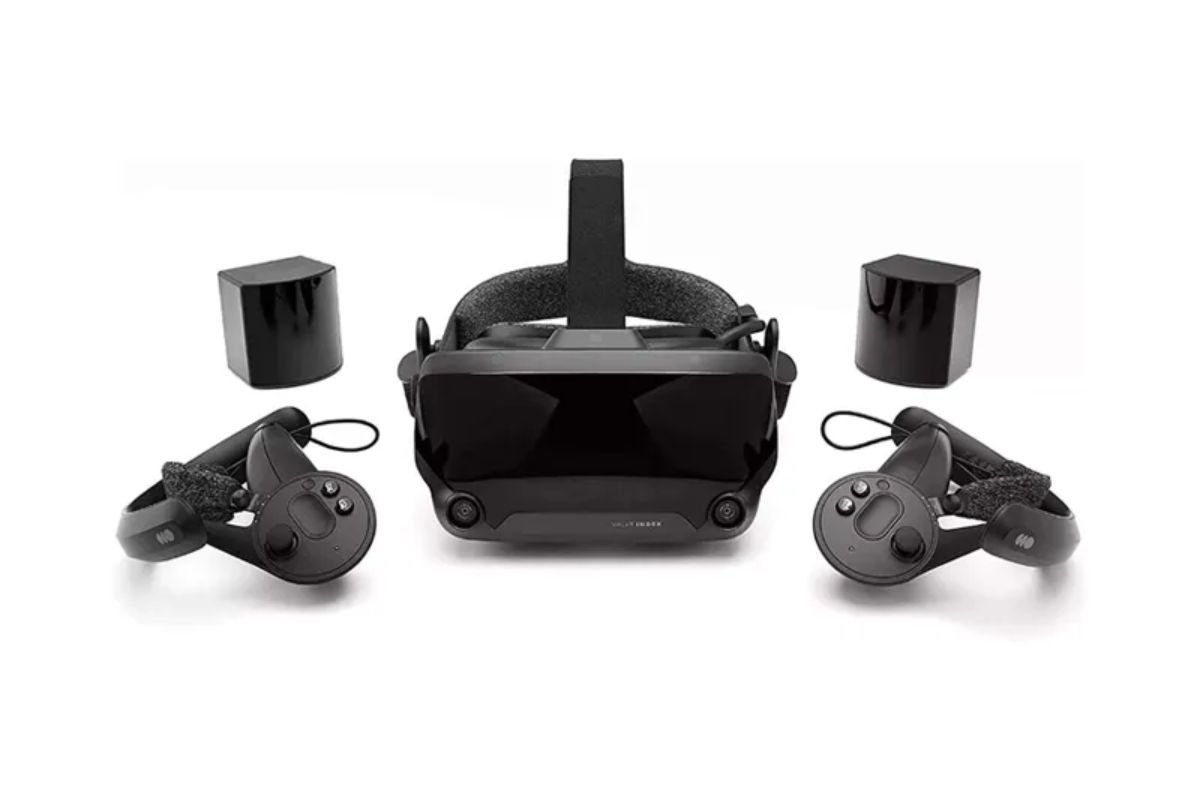
A high-end PC VR headset known for finger tracking and a wide field of view. Expensive and needs a powerful PC to run smoothly.
Price: $999
Platform: PC
Ratings: 3.5
Pros: Top-quality visuals, Finger tracking, Wide FOV
Cons: Expensive, wired only, needs a powerful PC
Also read: The Rise of Virtual Reality Companies: Revolutionizing the Digital Experience
3. PlayStation VR2:
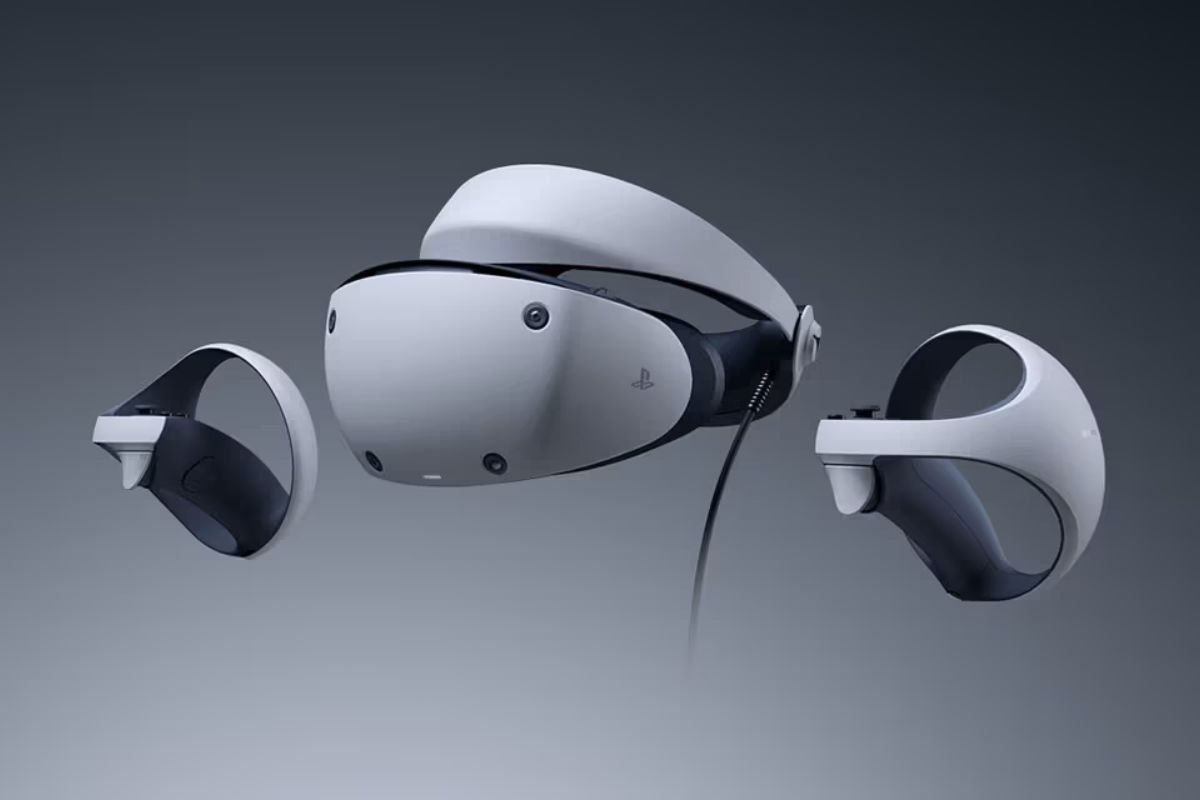
Made for PS5 users with an OLED screen and eye tracking. Doesn’t support PC and lacks backward compatibility.
Price: $549
Platform: PS5
Ratings: 4.5
Pros: OLED screen, Eye tracking, PS5 integration
Cons: Only for PS5, no PC use, no backward compatibility
4. HTC Vive Pro 2

A high-end PC VR headset with impressive 5K visuals and a wide field of view. Best for professionals or gamers with a powerful PC setup.
Price: ~$1,399
Platform: PC
Rating: ~3.9/5
Pros: High-resolution visuals are ideal for simulators or design
5. Pico 4:
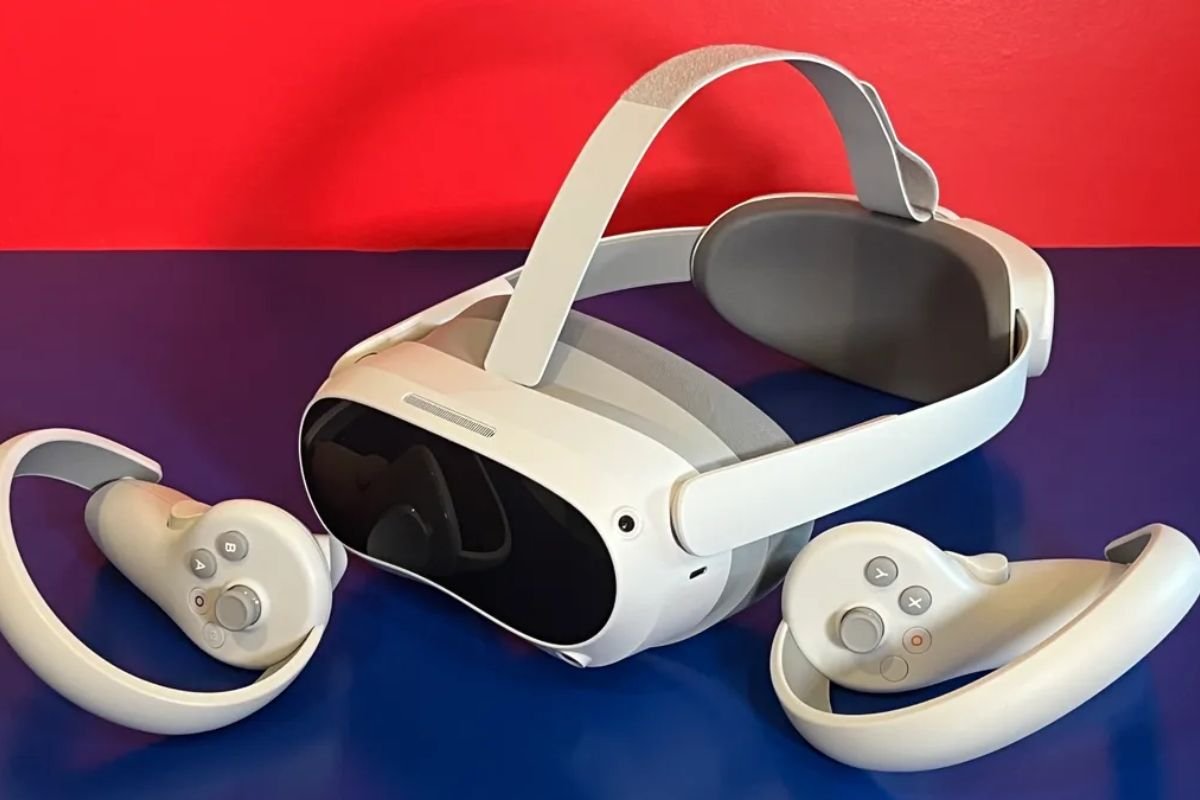
Affordable standalone VR with color pass-through and light design. Limited game library and not widely available worldwide. Review
Price: $379
Platform: Standalone, PC (via Streaming Assistant)
Ratings: 4.3
Pros: Affordable, Lightweight, Color pass-through
Cons: Not available in all countries, Weak game library, PC streaming lag
6. Apple Vision Pro:
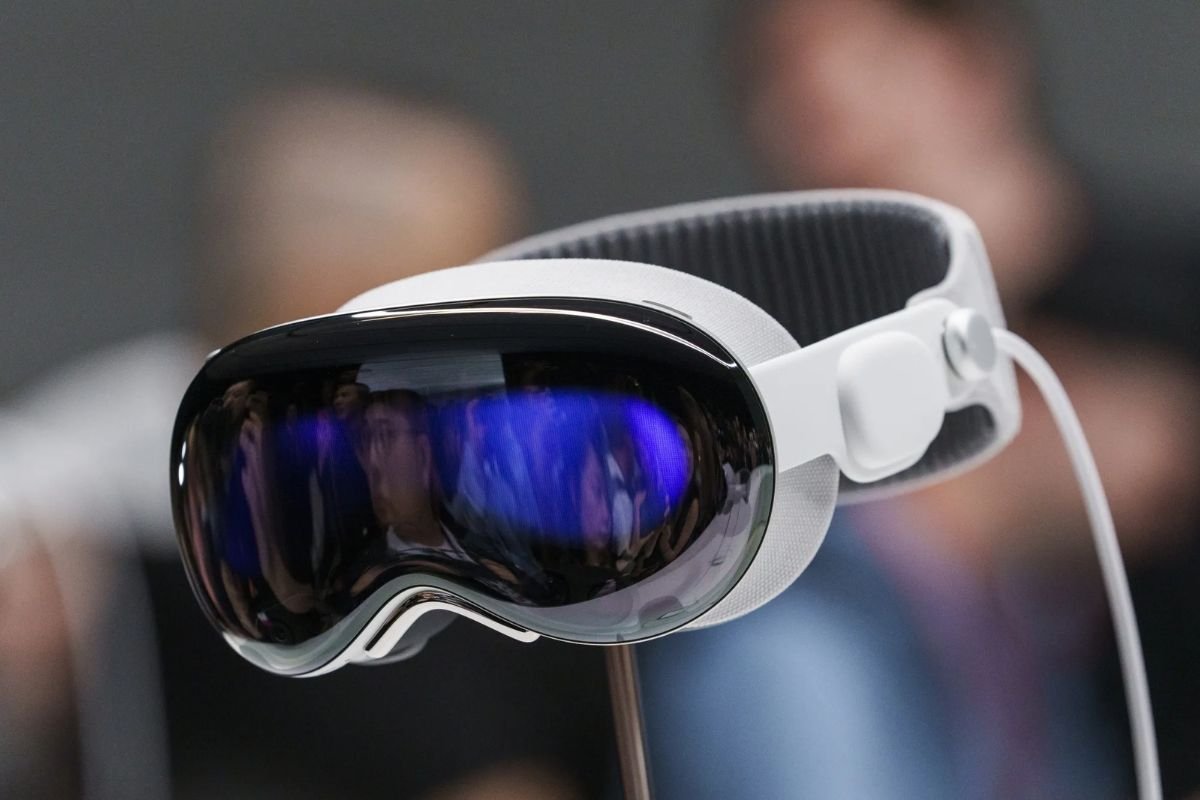
Premium VR for Apple users with sharp visuals and eye-hand control. Very expensive and not designed mainly for gaming.
Price: $3499
Platform: Apple Ecosystem
Ratings: 4.6
Pros: Stunning display, Smooth UI, Eye + hand control
Cons: Extremely expensive, Heavy, not gaming-focused
Don’t miss: 5 Trends Driving the Future of AR/VR
7. Samsung HMD Odyssey+:
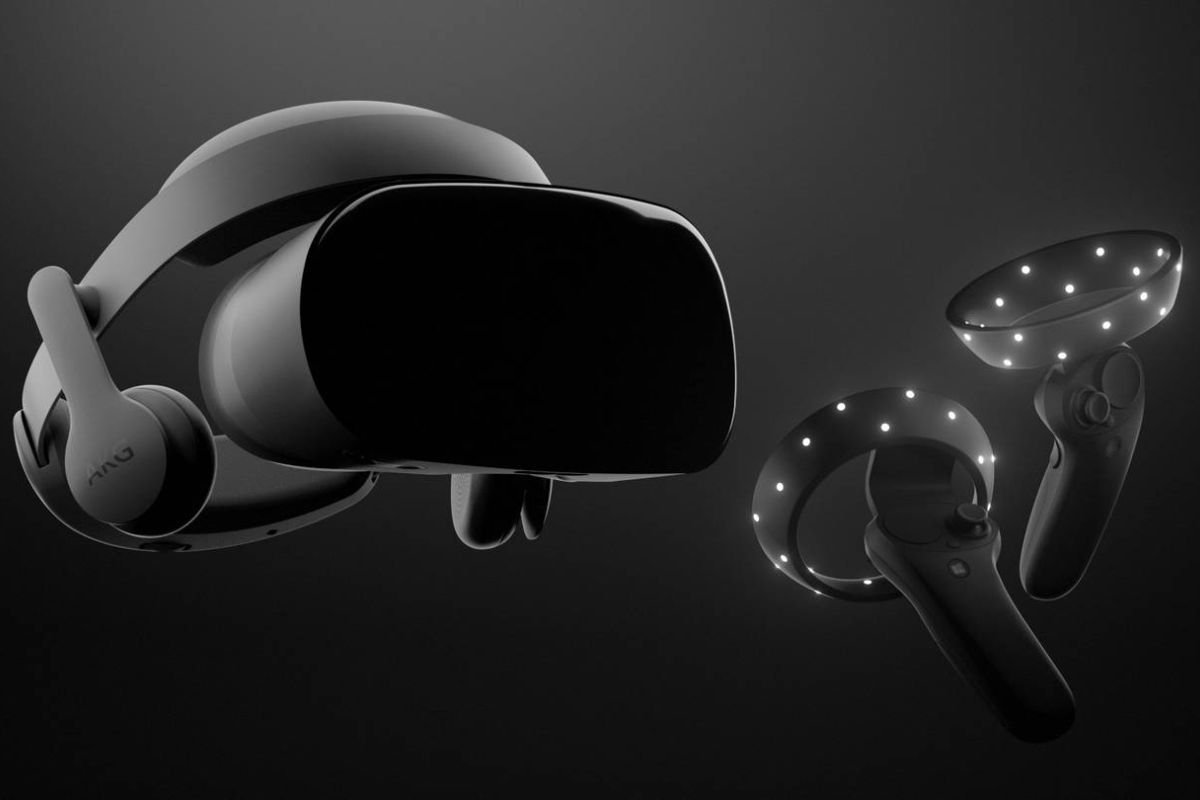
This PC-based VR headset offers rich visuals with AMOLED screens and built-in AKG headphones for immersive sound. It’s easy to set up and works with Windows Mixed Reality.
Price: Around $499
Platform: PC (Windows Mixed Reality, also SteamVR compatible)
Rating: 4.2
Pros: Sharp AMOLED display, built-in audio, easy setup
Cons: Slightly bulky, tracking not as precise as newer headsets
8. Lenovo Legion VR700:
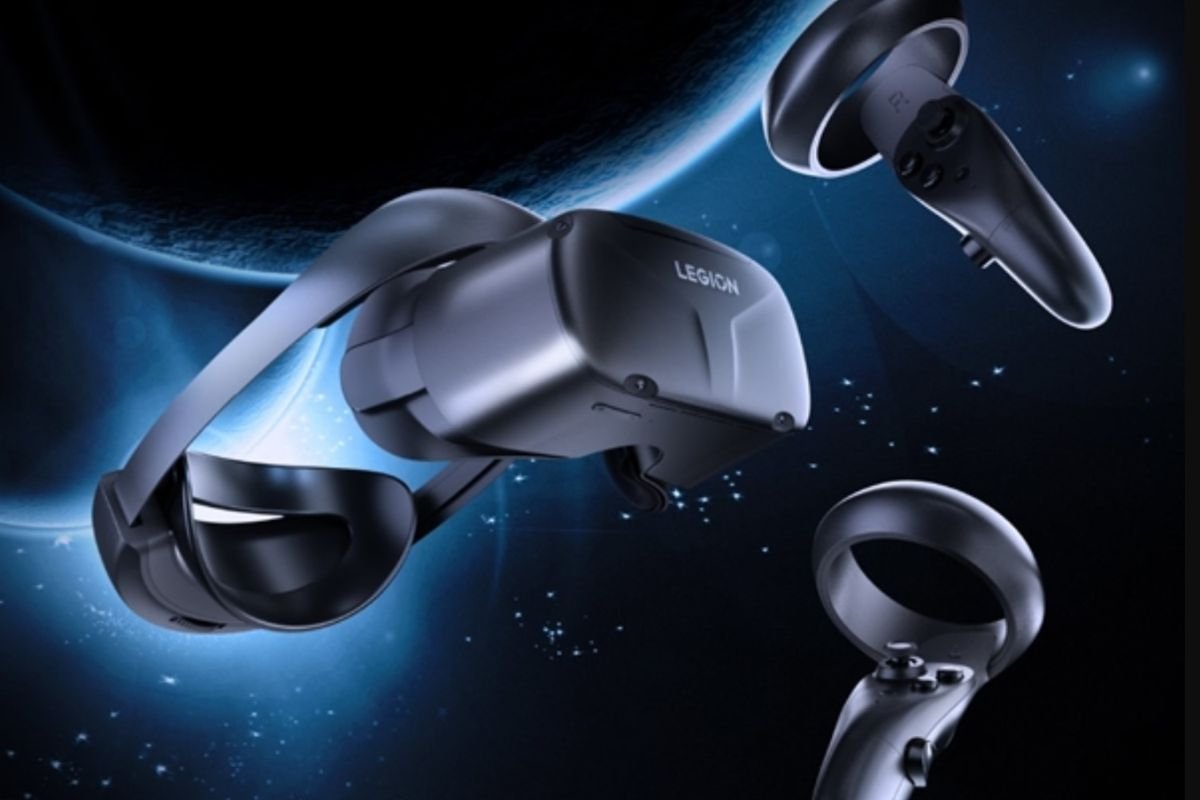
PC headset aimed at gamers with a high refresh rate and a budget price. Offers mid-range visuals and average tracking.
Price: $399
Platform: PC
Ratings: 4.1
Pros: Built for gamers, High refresh rate, Budget price
Cons: Not global, Mid-range graphics, Average tracking
Lenovo Legion VR700 vs Oculus Quest 2 (Comparison)
9. DPVR E4:
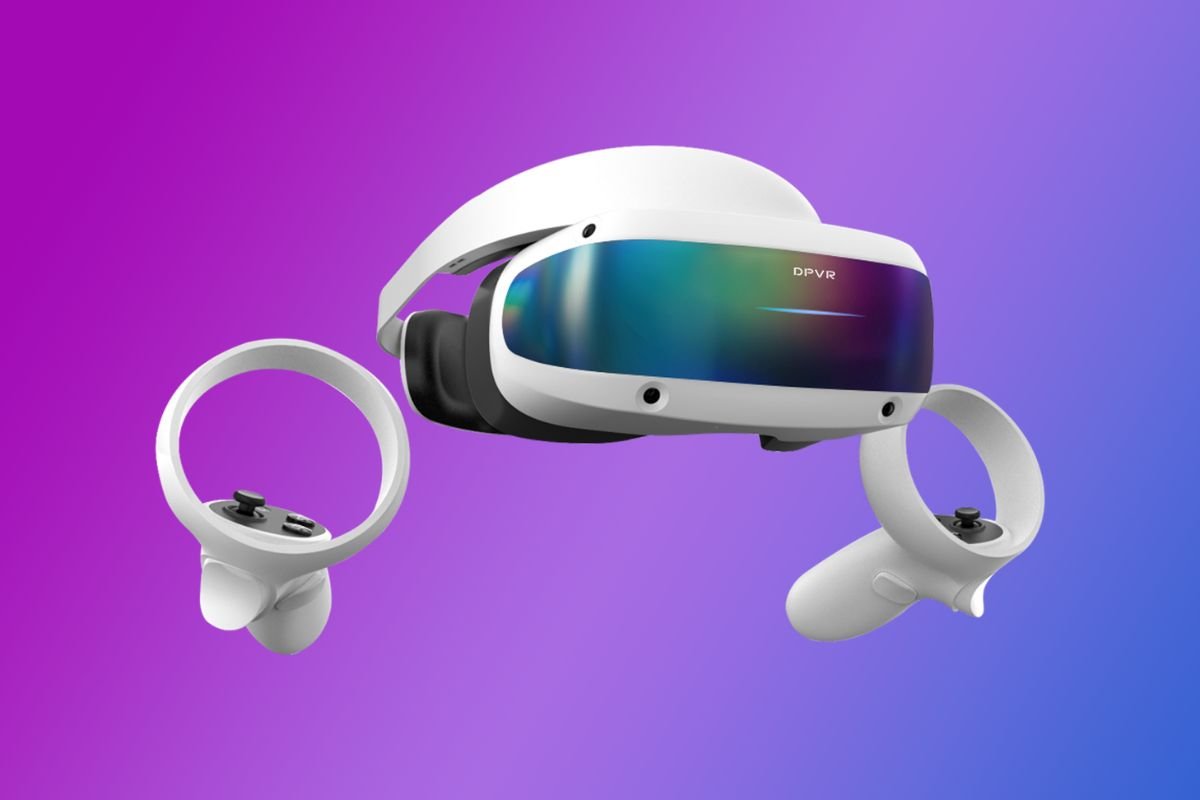
Affordable 4K headset for PC users with SteamVR support. Lacks hand tracking and has a narrow field of view.
Price: $599
Platform: PC
Ratings: 4.0
Pros: Affordable 4K, Lightweight, SteamVR compatible
Cons: Needs PC, no hand tracking, Small FOV
Similar: The Evolution of Processors for VR Gaming
10. Varjo Aero:
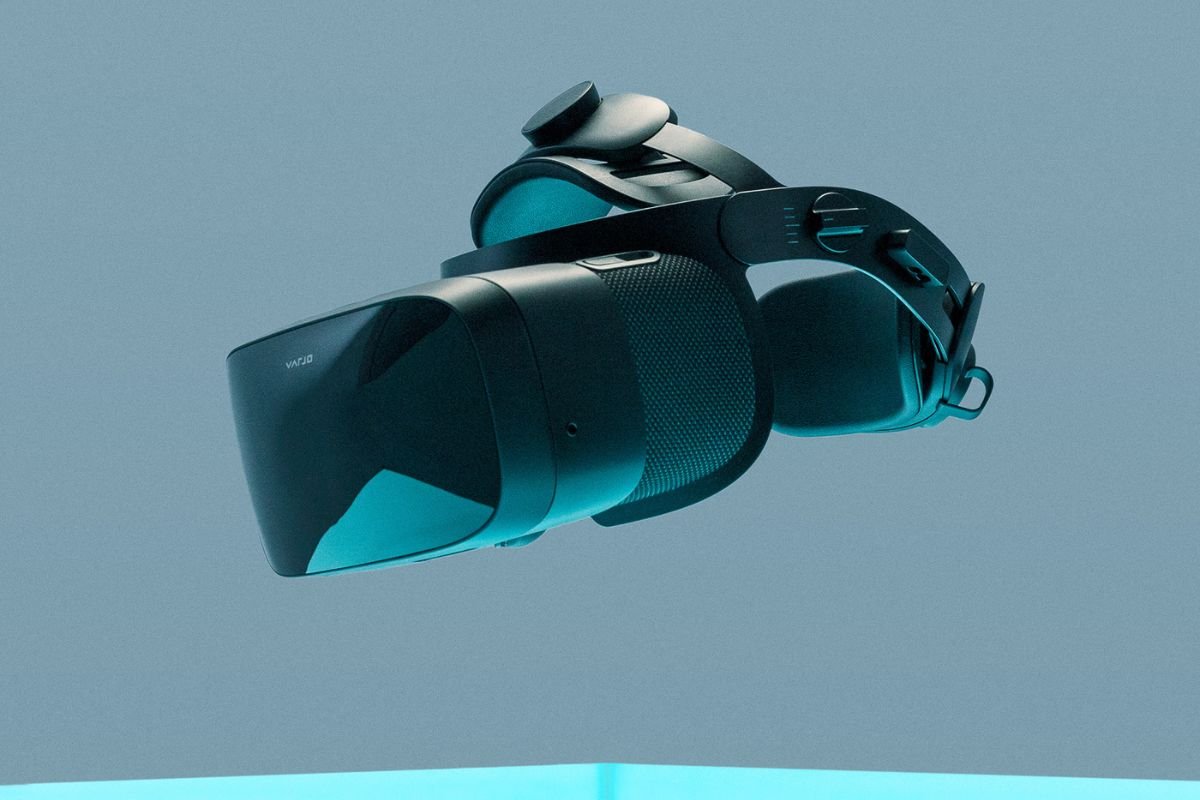
Top-tier visuals and optics for pro users on PC. Extremely expensive and doesn’t come with controllers.
Price: $1990
Platform: PC
Ratings: 4.8
Pros: True-to-life visuals, Pro-level optics, Adjustable IPD
Cons: Very costly, no controllers, needs a top PC
11. Oculus Quest 2:
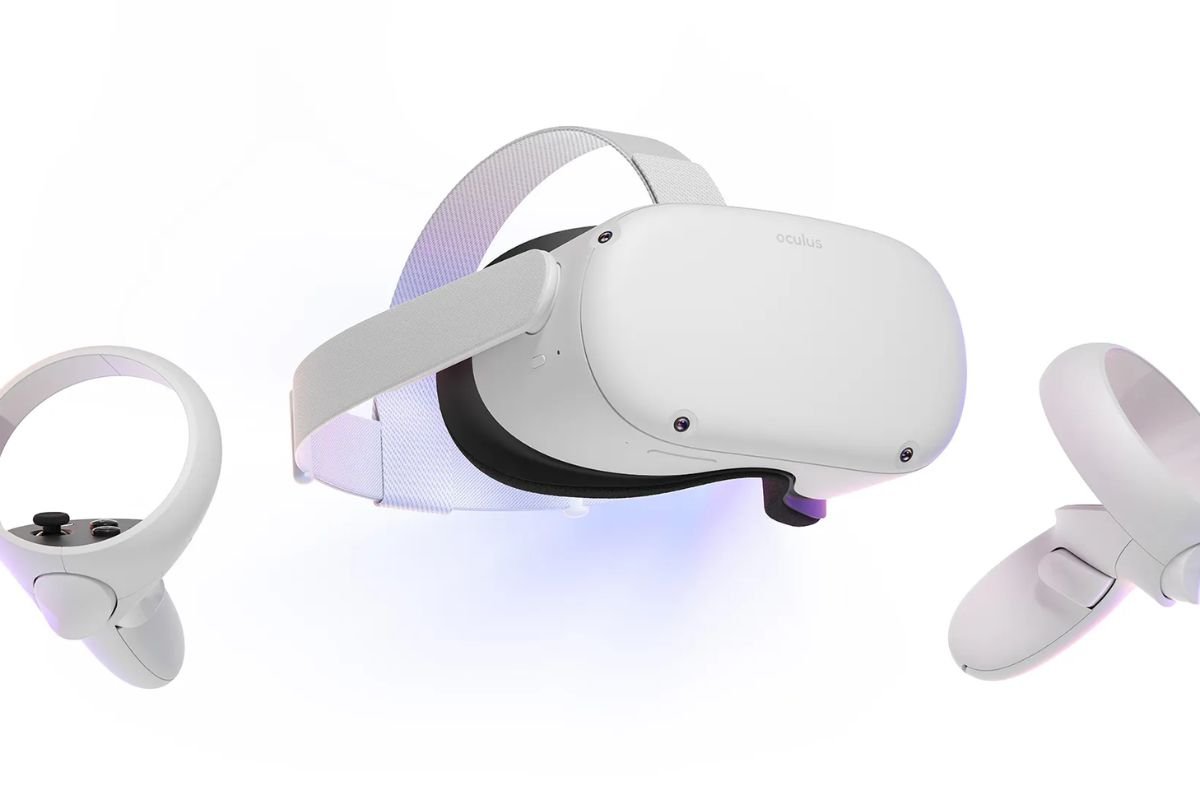
Best for VR beginners with a huge game library and PC support. Outdated compared to newer models and lacks eye tracking.
Price: $299
Platform: Standalone, PC
Ratings: 4.4
Pros: Affordable, Great for beginners, Huge support
Cons: Lower screen quality than newer models, aging tech, no eye tracking
12. Reverb G2:
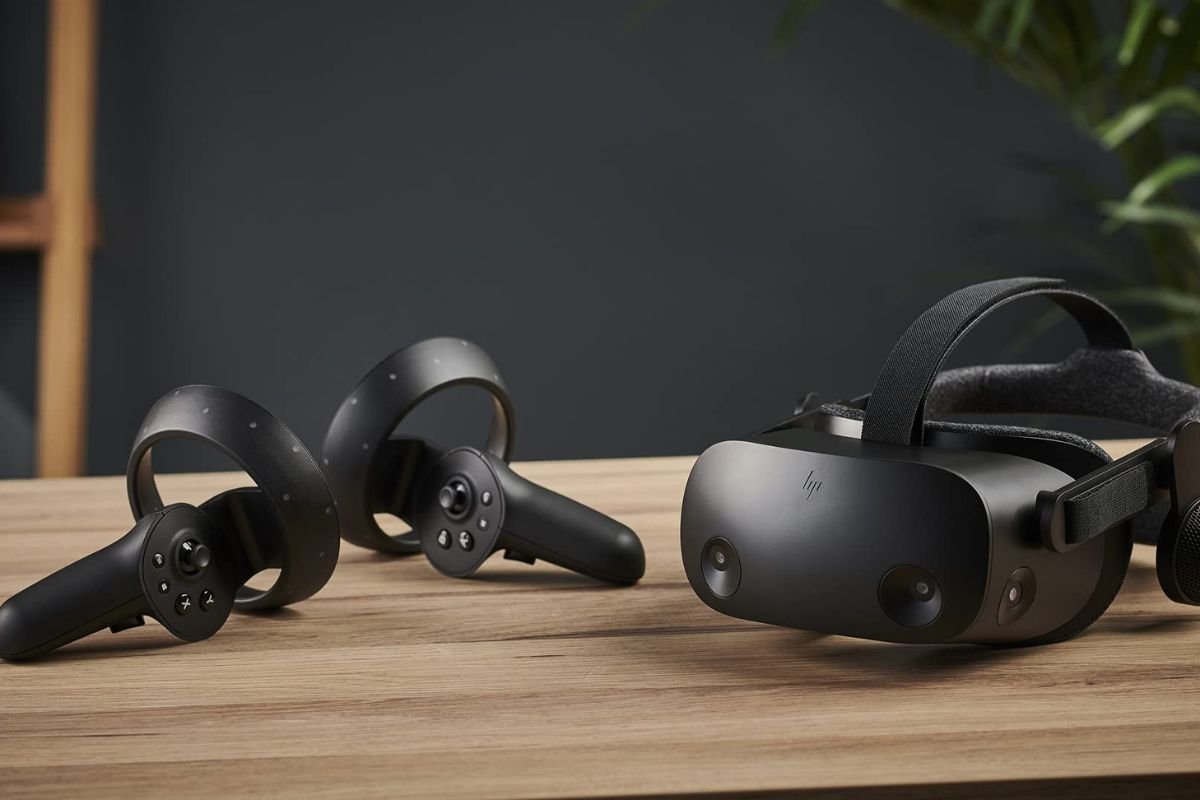
PC VR headset with a sharp display and great audio. Tracking can be unreliable and depends on the WMR platform.
Price: $599
Platform: PC
Ratings: 4.3
Pros: Sharp visuals, Great sound, designed with Valve
Cons: Controllers are weak, WMR is required, and tracking issues
13. Pico Neo 3 Link:
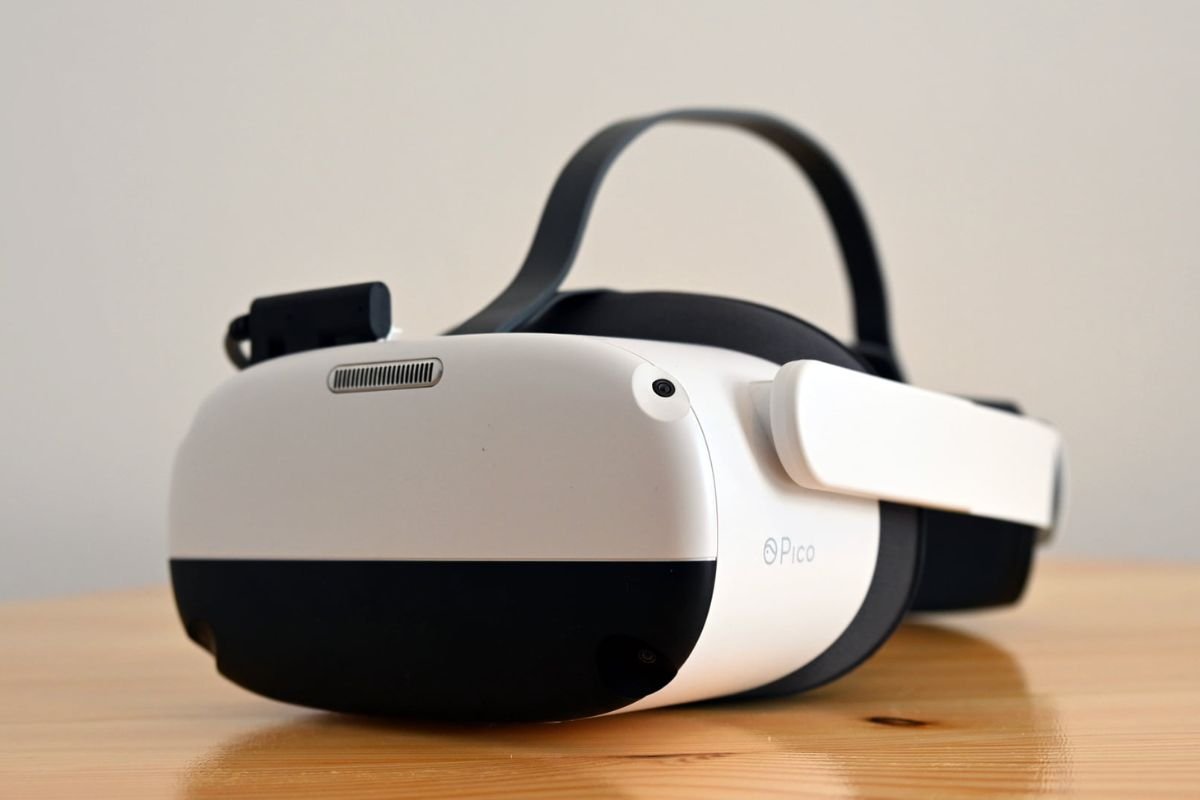
Lightweight headset with SteamVR support and good battery life. Faces software bugs and fewer updates now.
Price: $399
Platform: Standalone, PC
Ratings: 4.1
Pros: SteamVR support, Light build, Solid battery
Cons: Limited updates, Software bugs, Lower FOV
14. Irusu Play VR Ultra

A basic headset that uses your smartphone for VR, perfect for first-time users. Good for casual 360° video viewing, not true VR.
Price: ~$40
Platform: Smartphone-powered VR
Ratings: 3.5
Pros: Very cheap, easy entry
Cons: Low-quality visuals, no tracking
15. Procus One VR Box

Low-cost headset for smartphone VR experiences. Meant for simple VR video viewing, not interactive gaming.
Price: ~$15
Platform: Smartphone VR
Ratings: 3.3
Pros: Super low cost
Cons: Very basic, limited experience
Best VR Headsets for Beginners
If you are new to virtual reality, we recommend the Meta Quest 3, Oculus Quest 2, and Pico 4 as the best VR headsets for beginners. Here is why:
- Meta Quest 3: Simple setup, no PC needed, rich app store.
- Oculus Quest 2: Affordable, beginner-friendly controls, huge support community.
- Pico 4: Headlight, easy-to-navigate UI, fair price for new users.
These headsets work right out of the box, don’t require powerful computers, and come with large libraries of beginner-friendly games and apps.
Conclusion:
Virtual reality has moved beyond gaming. It’s now a tool for fitness, learning, work, and even therapy. Choosing the best VR headsets depends on your needs. If you are starting, standalone headsets like the Meta Quest 3 are ideal. Hardcore gamers and sim fans will enjoy the power of wired options like the Valve Index or Varjo Aero.
With the best VR headsets in 2025 offering higher resolution, better controls, and growing app libraries, there has never been a better time to jump into the VR world.
Whether you are diving into your first VR game or upgrading your setup, this guide helps you choose the right headset to match your style and needs.
FAQs
Que. 1) Can I Use a VR Headset without a PC?
Ans: Yes, several best VR headsets work perfectly without a PC. These include Meta Quest 3, Oculus Quest 2, and Pico 4. These are called standalone headsets. You can download games directly from their stores and play wirelessly. However, using a PC opens up more advanced features and high-end games, especially through platforms like SteamVR.
Que. 2) Are Wireless VR Headsets Better Than Wired Ones?
Ans: Wireless headsets offer more freedom of movement. You can move, jump, and spin without worrying about getting tangled in wires. This makes them ideal for casual gaming and fitness apps. However, wired VR headsets still have the edge in terms of performance. They deliver faster refresh rates, better resolution, and reduced latency. So if you are a serious gamer or designer, wired VR may still be the better choice.
In short:
- Wireless: Freedom, Simplicity
- Wired: Power, Precision
Que. 3) What is the Best VR for iRacing 2025?
Ans: For racing games like iRacing, the Valve Index and Varjo Aero top the list. These headsets offer sharp visuals, wide fields of view, and low latency. These features are crucial for spotting turns and keeping up with high-speed simulations.

